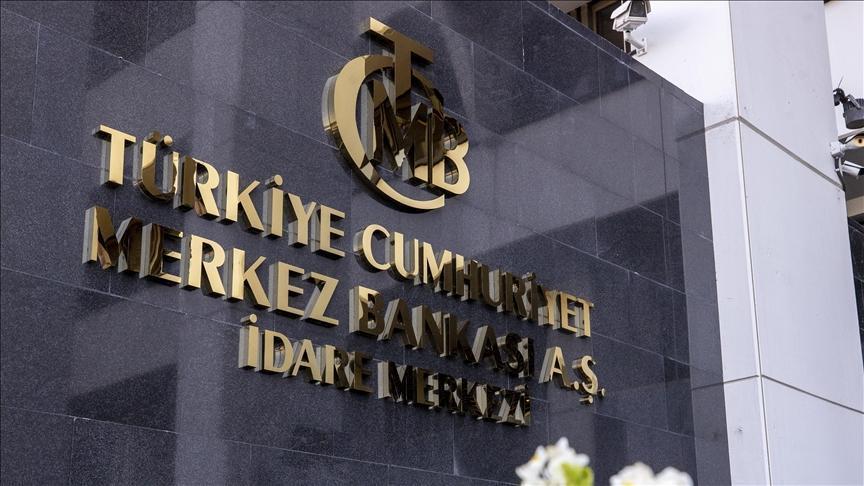Turkey’s top marketing executives see 2019 as ‘year of data’
Emre Kızılkaya - ISTANBUL

Turkey’s largest firms will focus in 2019 more on data to shape not only their strategic decisions, but also their products and even physical stores, according to top marketing executives who also warn of potential threats and misgivings.
A series of marketing events in Turkey saw in the past couple of months a heated debate on the route of digitalization in business.
Five marketing executives, who were announced among “Turkey’s 50 most efficient CMOs” at the Hürriyet-sponsored CMO Summit 2018 last month, say they will increasingly be using data with Artificial Intelligence (AI) and machine learning capabilities in the new year.
“One of the most important subjects in the agenda of the world’s industry giants today is the Internet of Things and Industry 4.0. We consider the Industry 4.0 transformation as the main precondition to stay in competition in all sectors of production,” Tunç Berkman, CMO of Vestel, one of the largest technology companies of Turkey, told the Hürriyet Daily News.
“The companies as the best examples of digital transformation will be the ones that use the data most efficiently. All in all, the future of the retail lies in the digital world,” he added, noting data-driven marketing and tracking customer footsteps as the most remarkable trends in the industry.
Data-based decision-making
According Deniz Aktürk Erdem, the CMO of LC Waikiki, “data analytics, AI and visual processing” are now the focus for one of the largest apparel retailers in the region for “understanding the customer and competition in experiences.”
After noting her company’s commercial marketing actions like e-commerce and “glocalization” initiatives, Erdem said: “Digital platforms provide us tools for data-based decision-making, profiling followers and potential customers, optimizing various messages and content, as well as comparing brand investments in different mediums.”
“We believe that artificial intelligence will be highlighted in 2019 and beyond. Our predictions also say that machine learning algorithms will be increasingly used for individual-based analysis, diversifying our customized offers,” CarrefourSA CMO Öner Çelebi said.
Explaining how digital channels let the companies have “more contact with the customers,” Öner added: “Physical stores are also being transformed. Self-service fast check-out, digital price tags, digital screens and digital radio take the stores into the digital world, while our e-commerce applications are bringing them to the homes of our customers.”
‘Content pollution’ threat for brand identity
Most CMOs note that the success in digital marketing is about “reaching the right target audience with the right message at the right place” and digital tools have provided more efficient ways to do so. Digital opportunities come alongside threats, though.
“As the digital investment by brands is increasing significantly, the heavy video pollution is causing the risk of the video content to run being unnoticed. Therefore, brands today are struggling to communicate their messages and increase their views,” Petrol Ofisi CMO Beril Alakoç said.
According to Alakoç, the struggle of brands trying to increase visibility, maximise consumer engagement and real time tracking of performance forces brands to produce content that is not well thought through and not linked strongly to their brand identity in various mediums including video. “Engaging videos that do not actually speak to the heart of the brand purpose, highly popular influencers that are not linked to the core of the brand identity are some of the main reasons of this pollution. It is, therefore, mandatory to create content that is highly engaging, very interesting AND also supports the brand purpose to have maximum impact,” she said.
Need to settle digital confusion
Boğaç Göncü, who served for five years as the CMO of Turkey’s largest online classified platform Sahibinden.com, pointed to the need of having a sound understanding of digitization. “Collected data may be out of date sooner than we think and may become useless, even inconvenient, so we should not only find the right customer at the right place in the right time, but we should also find the right persona. This can be possible only by not confusing digitalization and online issues, but by correctly understanding and managing them,” he said.
Listing “organizational convergence, regulation and knowing the customer” as the three key issues, Göncü also stressed that convergence of marketing and technology plays an important role not only on customer satisfaction and boosting revenues but also on optimization of costs. “This is why CMOs, CTOs and CIOs come closer to each other, as the decisions about infrastructure investment, such as those on hardware and software, as well as the ones about important products, price offerings and campaigns are being discussed and taken together,” he concluded.
















